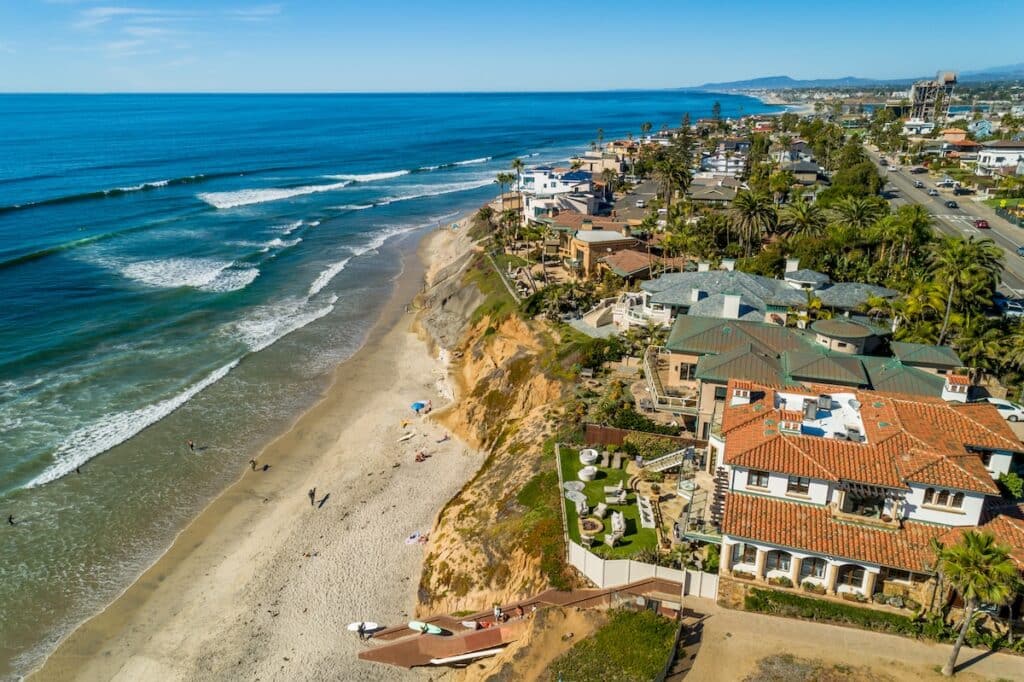If you’ve ever heard the term “property management” tossed around in real estate conversations, you might wonder what it actually entails. Is it just collecting rent and handling tenant complaints? Or does it go much deeper? The short answer: it’s all that and a whole lot more.
For property owners—whether managing a single-family rental in North County San Diego or overseeing a portfolio of properties—property management is the glue that holds everything together. It ensures properties are well-maintained, tenants are happy, and, most importantly, the investment remains profitable. Let’s break this down into manageable parts to understand exactly what’s involved in property management: definition, roles, types, and duties.
What Does Property Management Really Mean?
At its simplest, property management is the professional oversight of real estate. It’s like being the CEO of a building—managing operations, finances, and the people (aka tenants) who rely on it. This can apply to all kinds of properties: residential, commercial, industrial, or vacation rentals.
But here’s the thing: property management isn’t just about reacting when something breaks. Successful property managers are forward-thinkers who keep properties running smoothly and increase their value over time. Whether it’s maintaining a cozy rental in Encinitas or managing a multi-unit complex in Carlsbad, the responsibilities outlined in property management: definition, roles, types, and duties make property managers indispensable to real estate success.
The Responsibilities of a Property Manager: A Balancing Act
You might think, “How hard can it be? Just collect rent and call a plumber when there’s a leak.” But property management is far more nuanced. It’s a balancing act between operational efficiency, tenant satisfaction, legal compliance, and financial performance. Here’s a closer look at what a property manager actually does:
1. Tenant Relations: The Heart of the Role
Managing tenants is arguably the most visible part of property management. But it’s not just about handing over keys and collecting checks—it’s a relationship that requires communication, trust, and occasionally, some tough love.
- Marketing and Leasing
Property managers know how to market properties to the right audience. For instance, in an upscale area like Carlsbad, they might highlight proximity to the beach or high-rated schools. For a more urban property, they’d focus on nightlife and walkability. They handle everything from writing compelling property descriptions to hosting open houses. - Screening Tenants
Finding the right tenant can make or break a rental experience. Imagine renting your Del Mar beach house to someone who trashes it—no thanks. Property managers conduct background checks, verify employment, and check credit scores to ensure tenants are reliable. - Ongoing Communication
Whether it’s addressing maintenance requests or mediating disputes between neighbors, property managers are the go-to problem-solvers. A tenant with a broken air conditioner during a Solana Beach heatwave needs a quick response, and property managers make it happen.
2. Maintenance and Repairs: The Backbone of Operations
Every property—no matter how new or well-built—requires maintenance. And when things break (because they always do), it’s the property manager’s job to step in. Maintenance and repair tasks are a critical part of the Property Management: Definition, Roles, Types, and Duties framework.
- Preventive Maintenance
One of the most valuable services property managers provide is staying ahead of problems. Routine inspections help catch issues before they spiral out of control. For example, spotting a small leak in an Encinitas rental property and repairing it early can save thousands in water damage. - Vendor Management
A great property manager has a roster of trusted vendors on speed dial. Need a reliable plumber, an honest electrician, or a landscaping team that can handle a large HOA community? They’ve got it covered. - Emergency Repairs
Emergencies don’t happen on a schedule. Property managers are on call to handle everything from burst pipes at midnight to electrical outages during a tenant’s dinner party.
3. Financial Management: Making the Numbers Work
A property is only as successful as its financial performance, and property managers are deeply involved in the numbers.
- Rent Collection
This is the bread and butter of property management. But it’s not just about collecting checks—it’s about enforcing lease terms, following up on late payments, and handling evictions when necessary. - Setting the Right Rent
Pricing a rental property is an art and a science. Set the rent too high, and you risk a vacant unit. Too low, and you leave money on the table. Property managers analyze local rental trends (e.g., the competitive market in Cardiff-by-the-Sea) to ensure pricing is spot-on. - Budgeting and Reporting
Owners rely on property managers to track expenses, plan budgets, and provide financial reports. Whether it’s detailing the cost of repairs or calculating return on investment, they keep the financial side of things transparent and organized.
4. Legal Compliance: Navigating the Red Tape
Managing property isn’t just about people and maintenance—it’s about following the law. And in a state like California, with its strict tenant protections and housing regulations, this can be a minefield.
- Lease Agreements
Property managers draft leases that comply with local laws while protecting the owner’s interests. They ensure tenants understand their rights and responsibilities, reducing the risk of disputes. - Regulatory Compliance
From fair housing laws to safety codes, property managers stay up to date on regulations to avoid costly fines or lawsuits. For example, they’ll ensure smoke detectors are working and pool fences meet safety standards in compliance with California law.
Types of Property Management: Finding the Right Fit
Not all property management is the same. The services you need depend on the type of property you own and your goals as an owner. Let’s break down the major categories:
Residential Property Management
This is the most common type and covers everything from single-family homes to large apartment complexes. In North County San Diego, this might include managing a luxury beachfront home in Del Mar or a duplex in Oceanside.
Commercial Property Management
Commercial properties—think office buildings, retail spaces, and warehouses—come with their own set of challenges. Property managers here focus less on tenant complaints and more on lease negotiations, tenant retention, and managing the specific needs of business operations.
Vacation and Short-Term Rental Management
Short-term rentals, like those listed on Airbnb or VRBO, require a completely different approach. Property managers handle everything from guest communication and bookings to cleaning and maintenance. In a high-demand vacation area like Coastal North County, having someone manage your rental can mean higher reviews and repeat bookings.
HOA (Homeowners Association) Management
HOA management involves overseeing shared spaces, amenities, and compliance with community rules. Whether it’s a gated community in Encinitas or a condo complex in Carlsbad, HOA managers ensure everything runs smoothly for residents.
The Benefits of Hiring a Property Manager
When you consider the components of Property Management: Definition, Roles, Types, and Duties, it becomes clear why many owners choose to hire a professional. It’s not just about saving time—it’s about protecting your investment and enhancing its value over the long term.
For Owners
- Time Savings
Managing a property is time-consuming. Property managers free up your schedule so you can focus on other priorities—like enjoying a sunset paddleboard session in La Jolla. - Peace of Mind
Knowing your property is in good hands means fewer sleepless nights worrying about tenant issues or maintenance emergencies. - Increased ROI
A skilled property manager helps you maximize your rental income while keeping expenses in check.
For Tenants
- Reliable Support
Tenants appreciate having a dedicated point of contact for issues big and small. - Better Living Experience
Well-maintained properties lead to happier tenants, which in turn leads to longer leases and fewer turnovers.
Common Misconceptions About Property Management
Let’s clear up a few myths:
- “I only need a property manager if I have multiple properties.”
Even if you own just one property, a manager can save you time and stress—especially if you live out of town. - “Property management is too expensive.”
While there’s a cost involved, a good manager often pays for themselves by reducing vacancies, preventing costly repairs, and ensuring steady cash flow.
Your Next Move
Owning property in a beautiful market like Coastal North County San Diego is exciting, but managing it? That’s a full-time job. If you’re ready to protect your investment, enhance its value, and create a better experience for your tenants, hiring a property manager might be the smartest move you make.
Whether you’re exploring rental options for your Encinitas condo or need help navigating HOA responsibilities in Carlsbad, I’m here to help. Contact me, Kelli Miller, for expert advice and tailored solutions to ensure your property reaches its full potential.



